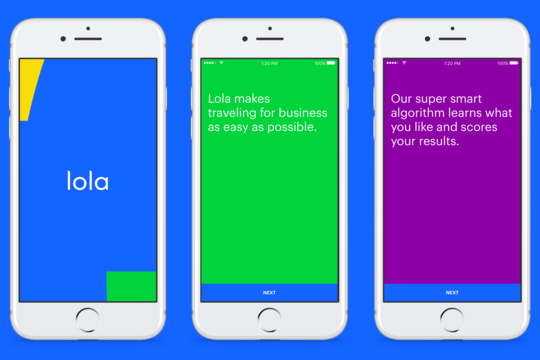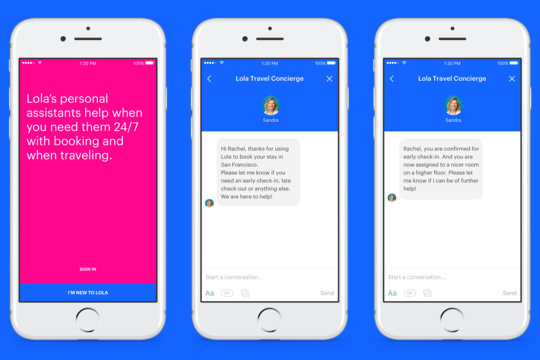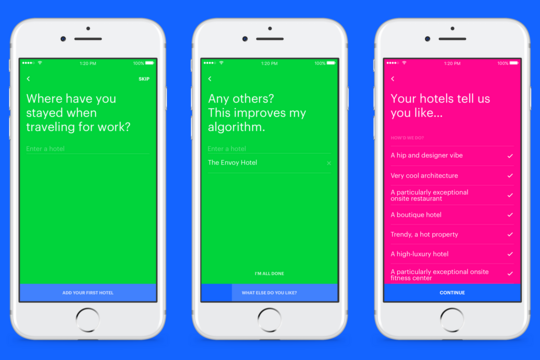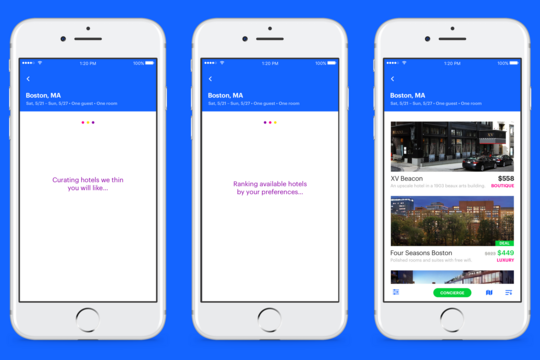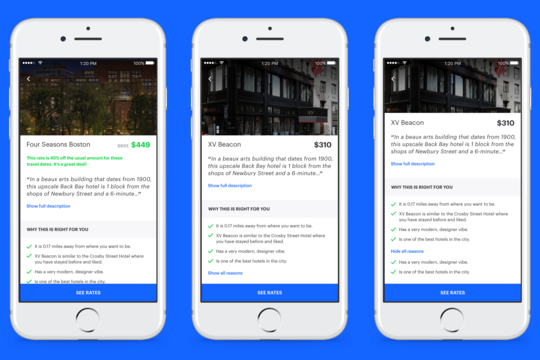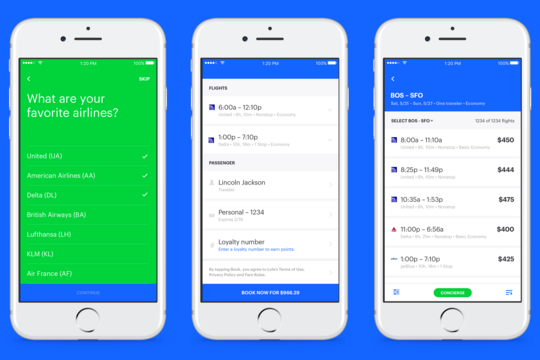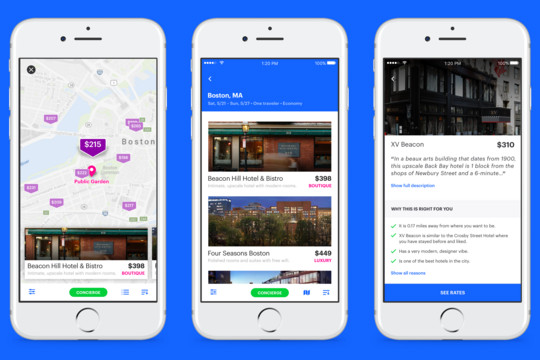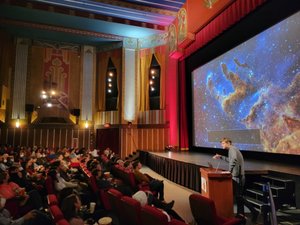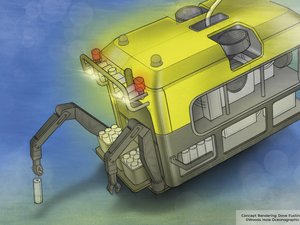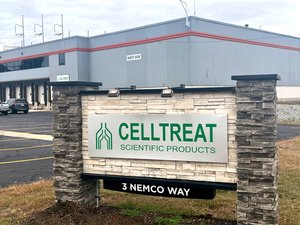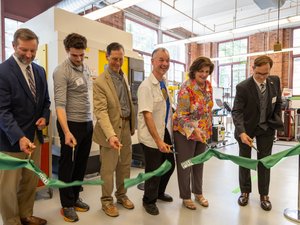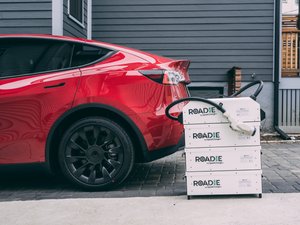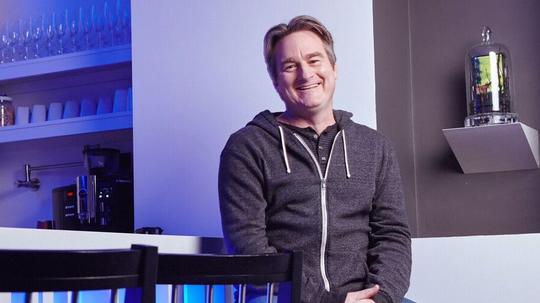
The original thesis for Lola Travel has failed.
That's not an unusual thing for startups — they pivot all the time. But Kayak co-founder Paul English had long set his sights on building the next big consumer tech company in Boston, first with his incubator Blade and then with Lola, which was initially released last year as a travel concierge app that could take on consumer giants like Expedia.
English could eventually focus on the big consumer prize again, but for now, his sole focus is the release of Lola 2.0, which he deems the "ultimate" app for business travelers. Taking some of the concepts from Lola's consumer version — namely the messaging with live travel agents aspect — the new app aims to make business travel super easy through a personalized search engine, direct booking integration and live agent service.
But even though Lola is in the business software space now, English told BostInno in a recent interview that it won't stop him from running the Boston company with a consumer mindset.
"I will say we're going to attack business as if we're a consumer company," English said, recalling advice Intuit co-founder Scott Cook gave him when he was at the business software company. "One of the things I learned from Scott at Intuit was the way to win business software is to treat this almost like consumer in terms of simplicity and speed, so to me, most business software is kind of ugly and slow, and if we can do something that's sexy and fast and light and modern, I think that's going to play a big role in helping us advance."
Gallery
The new version of Lola, which officially launched Wednesday, consists largely of two main features: a personalized search engine for hotel and flight booking that learns your preferences over time and a messaging interface that lets you receive live assistance from human travel agents and a chatbot. Another important component, English said, is that the app does direct booking, meaning travelers can accrue reward points from hotels like Marriot, which isn't possible when done through online travel agencies.
"When we did our focus groups, we saw that points were something that business travelers care a lot about," English said.
For Lola's search component, English said the goal is to help travelers avoid the kind of "analysis paralysis" that happens with other travel search sites by using machine learning to hone in on their preferences. Instead of relying on a series of filters seen on sites like Kayak, Lola will instead ask you what some of your favorite hotels are, and it will then try to find similar hotels by looking at common phrases in reviews and amenities.
"You should be able to do a search and click on the first result and buy it without any of the agony of doing analysis paralysis."
"You should be able to do a search and click on the first result and buy it without any of the agony of doing analysis paralysis," English said. "If the [artifical intelligence] knows you well, it's going to pick you the best flight and the best hotel."
When travelers need help or don't have time to make or change a booking, that's where the live travel agent and messaging components come in. English said the agents — which currently count for 15 out of Lola's 53 full-time employees — can provide booking assistance through backend software that is connected to what are known as global distribution systems, the networks used by companies for automated travel booking. As for how English plans to scale Lola's travel agent operation, he said the company will eventually partner with travel agencies that will use Lola's backend software.
English also teased a feature for teams that will be coming out at a later date. "There's gonna be some magic that happens when you have multiple people traveling," he said.
For users who sign up before the end of 2017, English said they will get to use the service for free for one year. After that, he said, Lola plans to charge a service fee that will be lower than what other companies, like American Express and Expedia, charge.
After the consumer version of Lola came out in May 2016, English said, business travelers became a focus that fall when he saw that they made up a significant portion of users. At that time, Brendan Sullivan and Krista Pappas — Lola's director of product and vice president, respectively — began researching opportunities in the business travel space. But it wasn't until the beginning of this year, when Carol Costello, now Lola's CMO, started running focus group with businesses that resulted in the company's new direction.
When Lola was in the middle of its big pivot at the beginning of this year, the company raised a $25 million Series B led by local venture capital firm CRV, with participation from GV (formerly Google Ventures) and Tenaya Ventures. Total funding is now at $45 million.
While English is no longer running a consumer company, he clearly wants to run Lola like one. To him, that means giving customers "these holy shit moments where they say, 'I can't believe how much easier this is, how much time this has saved me.'"
